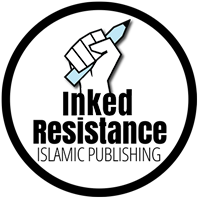
Memories of Hajj
Blog Post 68
June 16, 2024

From Dr. Ali Shariati’s Hajj
Written by Naser Khosrow
The pilgrims returned with reverence.
They were thankful to the Merciful Allah.
On their way to Mecca from Arafat,
They repeatedly said, “Labbaika” with great respect.
While tired of experiencing the hardships of the desert of Hijaz,
They rejoiced that they were saved from the torture and the fire.
They have performed the Hajj and completed the Umra.
Now, they safely return to their homelands.
I took time to go and welcome them back,
Although men of my class did not normally do this.
But among the crowd of this caravan,
I had a dear and very sincere friend.
I asked him how he accomplished?
This very difficult and fearful trip.
I informed him that since he had departed and left me alone,
All I could feel was regretfulness and sadness.
Now, I am happy that you performed the Hajj,
And you are the only Hajji in our homeland.
Now, tell me, how was your performance?
How did you respect that holy territory?
When you were about to remove your clothes and wear the Ihram,
What was you “intention” during those exciting moments?
Did you absolutely avoid all the things that must be avoided,
And whatever is inferior to Almighty Allah?
He replied NO!
I asked him:
If he said “labbaika”
With full knowledge and great respect?
If he heard the command of Allah?
Or, if he obeyed as Ibrahim did?
He replied NO!
I asked him:
While he was in Arafat,
While he stood so close to Almighty Allah,
Did he have a chance to know Him?
Was he not eager to learn a bit of the knowledge?
He replied NO!
I asked him:
When he entered the Kaaba
As the family of “Kahf and Raquim” had done,
Did he deny his self-centeredness?
Did he fear the punishment of the hereafter?
He replied NO!
I asked him:
When he shot the idols,
Did he think of them as evil?
Did he then avoid wrong deeds?
He replied NO!
I asked him:
When he offered the sacrifice,
To feed a hungry person or an orphan,
Did he first think of Allah?
And, did he then kill his selfishness?
He replied NO!
I asked him:
When he stood in Ibrahim’s position,
Did he reply absolutely on Allah?
Sincerely and with strong faith?
He said NO!
I asked him:
While he circumambulated,
When he made the Tawaf of the Kaaba,
Was he reminded of all the angels,
Who circumambulate this world?
He said NO!
I asked him,
During his Sa’y,
While he was running between Safa and Marwa,
Was he sanctified and purified?
He said NO!
I asked him:
Now that he had returned from Mecca,
And felt homesick for the Kaaba,
Did he bury his “self” there?
Was he impatient to go back?
He said NO!
“Of whatever you have asked me so far,
I have understood nothing!!!”
I said:
Oh friend, you have not performed the Hajj!
And, you have not obeyed Allah!
You went to Mecca and visited the Kaaba!
You spent your money to buy the hardships of the desert!
If you do decide to go to Hajj again,
Try to perform it as I have instructed you!
Note: Eid al-Adha is impossible to celebrate amidst the continuing genocide of the people of Gaza and the whole of Palestine. We will celebrate when Palestine is free, inshallah. Have a blessed Eid and remember to pray for victory over tyranny and an end to oppression everywhere.
Brief Glossary
“Labbaika”: “Here I am (Your obedient one, submitting to You).”
Hijaz: Arabian Peninsula
The torture and the fire: This refers to Hell.
Class: It seems that at the time of writing this poem it was a violation of limits for a poor person to go and welcome Hajjis on their return.
Trip: This refers to the days when people traveled by foot for months to reach Mecca. There are still some people from neighboring countries who continue to follow this tradition.
Holy territory: The sacred and holy precincts of Mecca
“Kahf and Raquim”: The people of the cave and the inscription from the Holy Qur’an 18:9
Naser Khosrow
The writer of this poem, Naser Khosrow (Nasir Khusraw), was born in Qubadiyan in Tajikistan which was part of the Marw (Merv) province in the Khurasan region in 1004 and died between 1072-1088. His full name is Abu Mu’in Hamid al-Din Nasir ibn Khusraw ibn Harith al-Qubadiyani al-Marvazi. He was a Persian poet and wrote a book about his memories of Hajj. Naser Khosrow is buried in Afghanistan.
(Poem taken from Dr. Ali Shariati’s Hajj, translated from Persian by Dr. Ali A. Behzadnia & Najla Denny, 1977, published by Free Islamic Literatures, Inc., Houston, Texas)
Hajj can be accessed from https://www.al-islam.org/hajj-pilgrimage-ali-shariati



